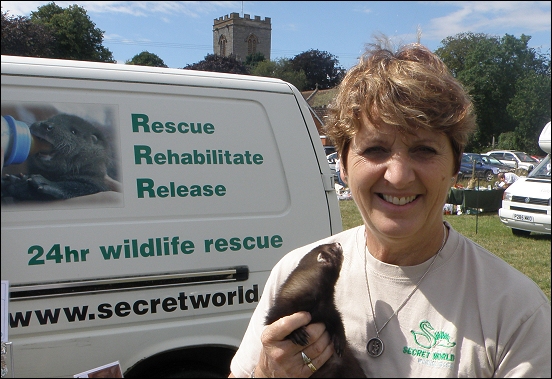The founder of a wildlife centre near Burnham-On-Sea has this week said cat owners should not be worried by national media reports about the risk of their pets infecting them with tuberculosis.
Pauline Kidner from Secret World Wildlife Rescue Centre says “the chance of being infected with TB from your cat is very, very low.”
“Putting it into perspective, less than 30 cats have been found to be infected out of a population of over 10 million cats resident in this country,” she told Burnham-On-Sea.com.
“The reports, although undoubtedly worrying for the owners involved, should be kept in proportion. Less than 30 cats have been reported with Mycobacterium bovis TB in the last seven years.”
“Although in the case reporrted this week, two people in contact with the cats became infected with Mycobacterium bovis TB this is also very unusual. Mycobacterium bovis accounts for just 0.7% of human TB cases in the UK, the rest being as a result of human strains of the disease such as M. tuberculosis.”
She added: “There have been no increases in Mycobacterium bovis cases in humans in recent years. In 2012 there were just 35 cases. Of these cases 57% were in people over 65 born in UK (almost certainly latent cases in which infection occurred in the days before pasteurization of milk) and 26% in 15-44 year olds born outside UK. Only around five cases a year are of less clear origins, possibly related to cattle and wildlife transmission, such as in the cat cases recently reported. The chance of being infected with TB from your cat is therefore very, very low.”
She added that Secret World had read with interest the report in the Veterinary Record of a cluster of cases of tuberculosis in cats in Berkshire and Hampshire and appreciate it may have caused concern to animal lovers.
Pauline added: “Nine cats showed signs of infection, with seven cases confirmed as Mycobacterium bovis infection, the same infection that causes tuberculosis in cows.”
“Cows grazing on common land 250m away from where the cats lived had same strain of Mycobacterium bovis, suggesting a likely link to these animals. Seven out of the nine cats, however, had bite wounds, which made cat-cat or rodent-cat transmission the most likely route of infection.”
“Although cats may contract TB by drinking infected milk from tuberculous cows, this is a less common route of infection. Cats frequently hunt wild rodents, which are known to carry both M. microti (rodent TB) and M. bovis (cattle TB), and either eat or are bitten by these rodents. The rodents themselves are likely to contract M. bovis from the environment in areas such as in this case, where TB is prevalent in cattle. Cat wounds, such as those from cat fights, may also be contaminated in this way.”
“Putting it into perspective, less than 30 cats have been found to be infected out of a population of over 10 million cats resident in this country.”







